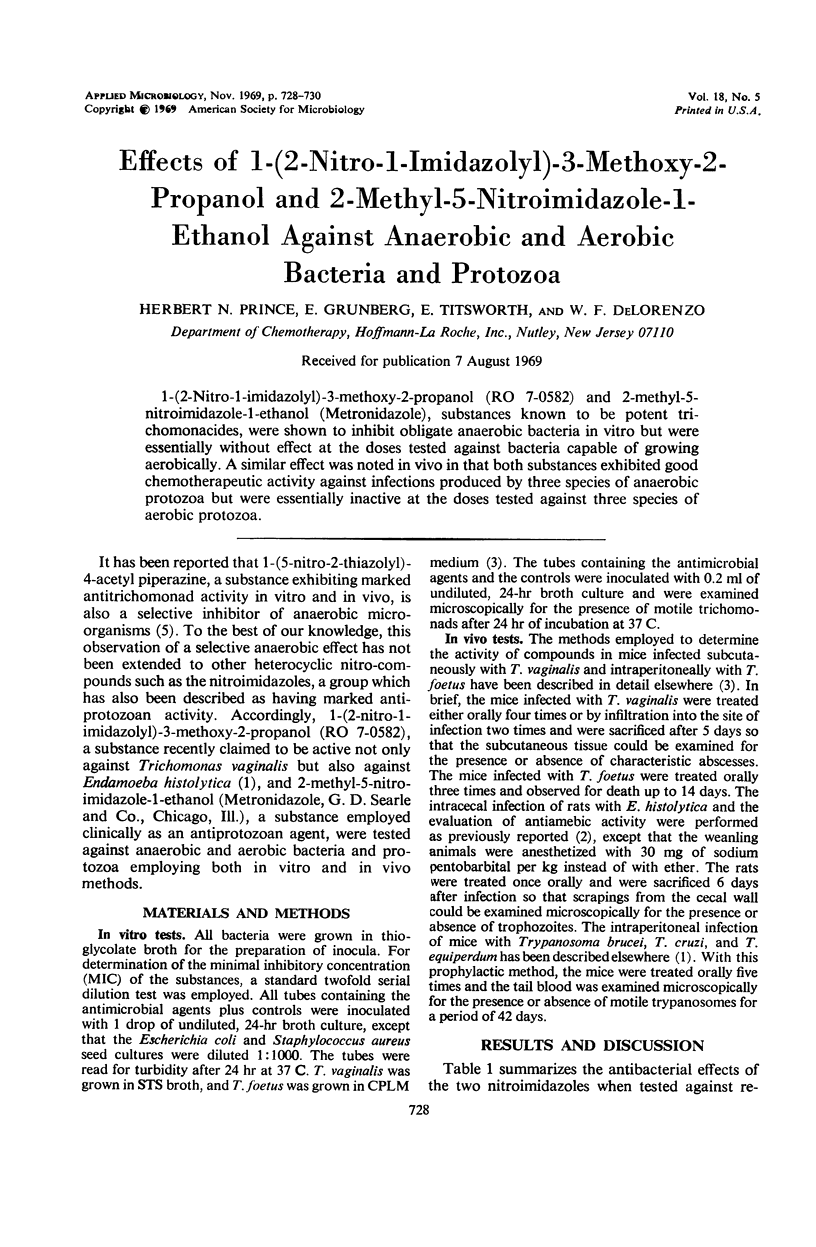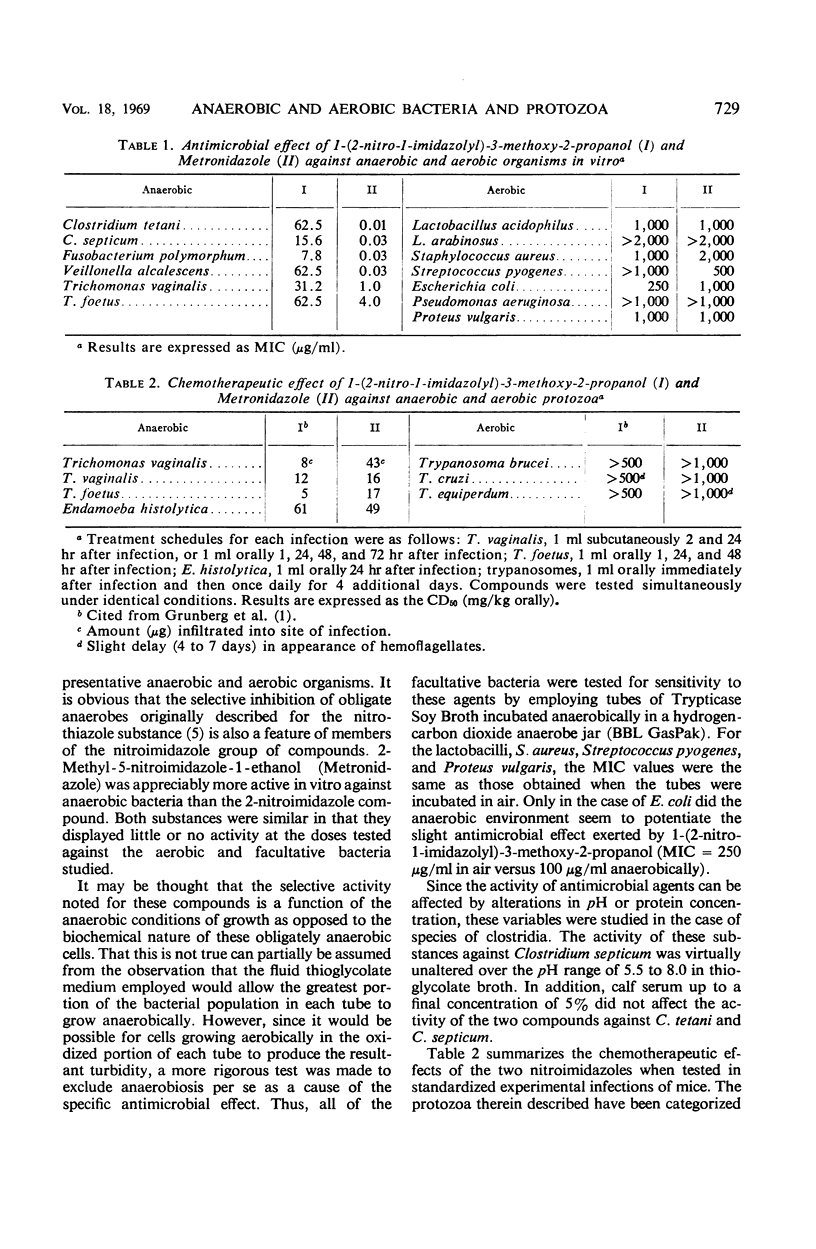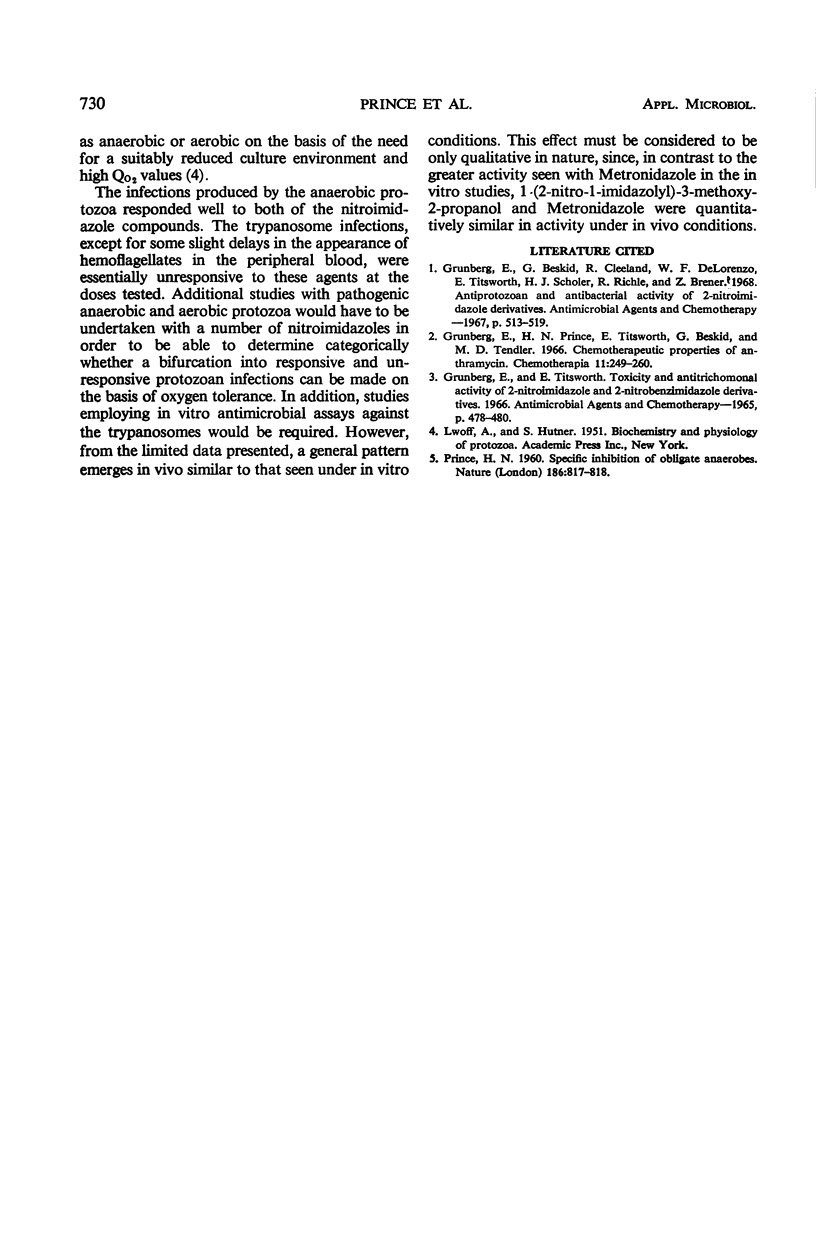Abstract
1-(2-Nitro-1-imidazolyl)-3-methoxy-2-propanol (RO 7-0582) and 2-methyl-5-nitroimidazole-1-ethanol (Metronidazole), substances known to be potent trichomonacides, were shown to inhibit obligate anaerobic bacteria in vitro but were essentially without effect at the doses tested against bacteria capable of growing aerobically. A similar effect was noted in vivo in that both substances exhibited good chemotherapeutic activity against infections produced by three species of anaerobic protozoa but were essentially inactive at the doses tested against three species of aerobic protozoa.
Full text
PDF


Selected References
These references are in PubMed. This may not be the complete list of references from this article.
- Grunberg E., Beskid G., Cleeland R., DeLorenzo W. F., Titsworth E., Scholer H. J., Richle R., Brener Z. Antiprotozoan and antibacterial activity of 2-nitroimidazole derivatives. Antimicrob Agents Chemother (Bethesda) 1967;7:513–519. [PubMed] [Google Scholar]
- Grunberg E., Prince H. N., Titsworth E., Beskid G., Tendler M. D. Chemotherapeutic properities of anthramycin. Chemotherapy. 1966;11(5):249–260. doi: 10.1159/000220459. [DOI] [PubMed] [Google Scholar]
- Grunberg E., Titsworth E. Toxicity and antitrichomonad activity of 2-nitroimidazole and 2-nitrobenzimidazole derivatives. Antimicrob Agents Chemother (Bethesda) 1965;5:478–480. [PubMed] [Google Scholar]
- PRINCE H. N. Specific inhibition of obligate anaerobes. Nature. 1960 Jun 4;186:816–818. doi: 10.1038/186816a0. [DOI] [PubMed] [Google Scholar]



